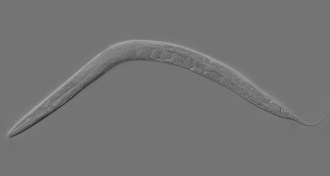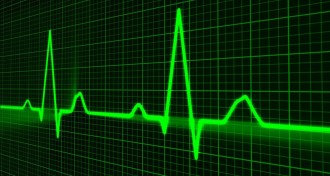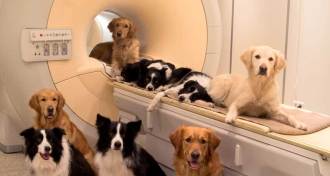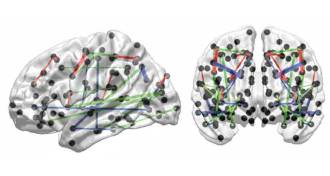Neuroscience
-
 Neuroscience
NeurosciencePianists learn better by playing
Pianists’ muscle memory helped them recognize incorrect notes.
-
 Neuroscience
NeuroscienceBrain chemicals help worms live long and prosper
Serotonin and dopamine accompany long lives in C. elegans worms under caloric restriction.
-
 Planetary Science
Planetary ScienceFeedback
Readers respond to a special report on neuroscience and discuss moon dust.
-
 Neuroscience
NeuroscienceHeartbeats help people see
People were more likely to spot a flash of a hard-to-see ring when the image was presented right after a heartbeat
-
 Neuroscience
NeuroscienceMe, Myself, and Why
Me, Myself, and Why is an ambitious effort to dissect the hodgepodge of genetic and environmental factors that sculpt people’s identities.
By Meghan Rosen -
 Neuroscience
NeuroscienceMusic doesn’t move some people
One study offers a glimpse into those who find no enjoyment in tunes.
-
 Neuroscience
NeuroscienceBrain uses decision-making region to tell blue from green
Language and early visual areas of the brain are not crucial for distinguishing colors, an fMRI study suggests.
-
 Neuroscience
NeuroscienceGirls may require more mutations than boys to develop autism
New results may help explain why more males wind up with autism.
-
 Neuroscience
NeuroscienceBrain’s fact-checker located
A bit of brain tissue near the top of the head may be the body’s fact-checker. Called the supplementary motor cortex, this brain region monitors the body’s action and sends an alert when a mistake is made.
-
 Neuroscience
NeuroscienceLike people, dogs have brain areas that respond to voices
MRI study may help explain how pups understand human communication.
-
 Psychology
PsychologyStress hormone rise linked to less risky financial decisions
People given cortisol chose safer options, suggesting inherent risk aversion as an overlooked variable in financial crises.
-
 Neuroscience
NeuroscienceWhite matter scaffold offers new view of the brain
A new neural map of white matter connections may explain why some injuries are worse than others.